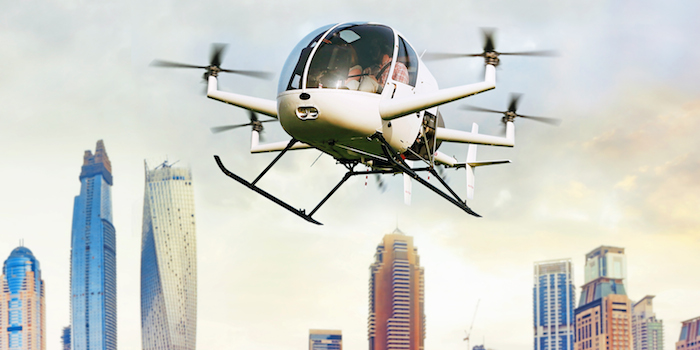Travellers not yet ready to step into the future
Travelling on hyperloop trains, supersonic aircraft, ‘smart’ motorways or autonomous drones – when consumers hear about how travel will look in the future, they are excited, but also apprehensive.
That’s the finding of a survey of 6,008 consumers in Canada, France, Germany, Spain, the United Kingdom and the United States, commissioned by Travelzoo in partnership with ITB Berlin, the world’s leading travel trade show.
Joel Brandon-Bravo, Travelzoo general manager, UK, presented the survey results at the ITB Future Day event in Berlin earlier this month.
How do people expect to travel in the future?
In the survey, consumers were first asked about how they expect to travel in the future. Self-driving cars on ‘smart highways’ are already being tested, so it’s no surprise that just over half of consumers (51%) expect to see them become the norm by 2030.
This was followed by aircraft powered by alternative fuels (36%), and hyperloops (31%), both of which are already being developed by a variety of established brands and start-ups. Less than a third (28%) expect to see the return of supersonic flights in the next 12 years –this is despite Concorde proving the technology works, and claims from manufacturers such as Boom Supersonic that flights will begin by 2022.
Travellers are strongly aligned on the benefits of such new technologies, with nearly three-quarters (74%) agreeing that the expected reduction in emissions, congestion and reliance on traditional fuel sources will improve the environment. Many also highlight anticipated faster travel times (88%) and reducing the stress of travel (63%) as benefits.

Flying futuristic drone transporting people in Dubai
Consumers fear future travel
However, when it comes to pilotless aircraft or autonomous, passenger-carrying drones, consumers are far more cautious in their expectations around adoption. Only one in five (20%) believe they will become the norm by 2030. Indeed, such is the skepticism, that a significantly higher percentage (38%) state they’d prefer to risk teleportation, a technology that doesn’t even exist, to get to or from their holiday.
Confidence in autonomous flight technology is very low among respondents. Just 7% admit to a preference to use it compared to aircraft powered by ‘alternative’ fuels (32%) or a supersonic jet (31%). Overall, more than three-quarters (76%) of consumers would not trust driverless or pilotless technology enough to travel in it, and 78% of travellers state they would be ‘very’ or ‘quite’ worried about safety and reliability (compared to 55% for both supersonic aircraft and hyperloops).
“Advances in automation, artificial intelligence, design and materials, and pure necessity, are combining to drive a revolution in how we will travel and take holidays in the future,” explained Brandon-Bravo.
“But our study emphasises that there is a trust gap that must be bridged. Only 8% of respondents globally said they would be comfortable flying in a drone – so a message to the entrepreneurs and organisers rushing to be first to market is that a huge majority of their potential customers need to be convinced about safety and reliability.”
Travellers won’t pay for future
Consumers are definitely concerned that new forms of travel will be expensive and only available for a few to enjoy. Eight out of ten believe they’ll be a luxury only a few can afford, and 60% doubt they would make travel more affordable. Only 4% of respondents state they are prepared to pay ‘much more’ than they do now for their holiday travel – this is not good news when enormous upfront development and infrastructure costs will need to be met.
By transport type, consumers tend to associate speed with desirability, demonstrating a slight readiness to pay ‘much more’ for hyperloops (an average of 7% in France, Germany and Spain) and supersonic flights (10% in the UK, 17% in the USA) according to the survey, which were both forms of transport they also associate most with perceptions of luxury and convenience.
However, where automation has removed the need for human expertise or skill – such as pilotless aircraft or driverless cars – travellers are clear that they expect to pay less for using such modes of travel in the future, and so the industry needs to take note.




